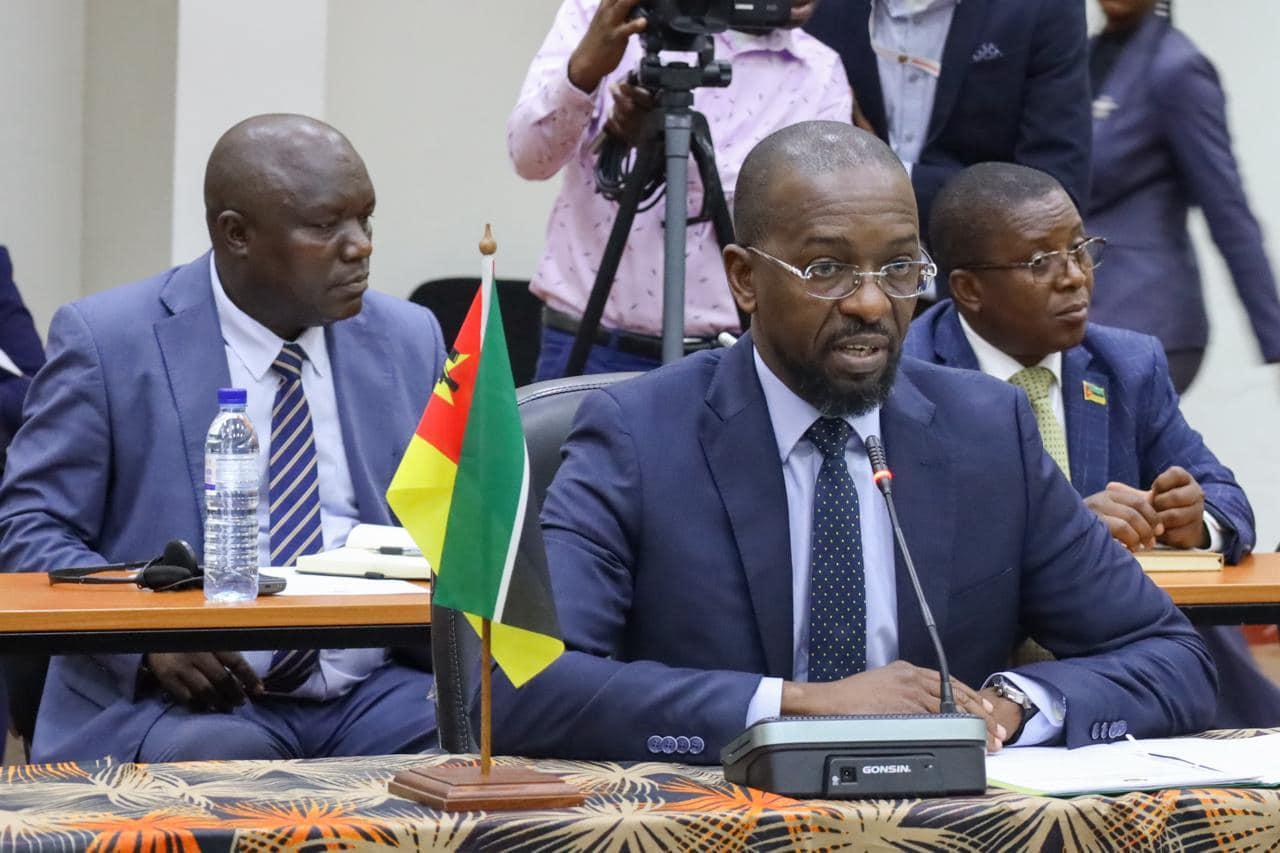Africa-Press – Mozambique. Mozambique’s minister of defence, Cristóvão Chume, on Thursday expressed his conviction that the European Union Training Mission in Mozambique (EUTM-MOZ) will continue, also asking for lethal weapons.
The mission, whose term ends this year, trains local military personnel in the fight against terrorism.
“Of course the programme will continue, because even the forces that are on the ground need to be refreshed,” said the minister, in response to the Lusa news agency, after a meeting in Maputo with the Chair of the Political and Security Committee of the EU, Ambassador Delphine Pronk. “And you know that when you train, go to the field, face a situation, you have to come back to share the lessons that are found on the ground and probably change some things.”
Portugal took command of EUTM-MOZ, whose term began in September 2022 and runs for two years, following the terrorist attacks in Cabo Delgado, in the north of the country, with a view to training the country’s military.
The EUTM-MOZ mission, which included the delivery of non-lethal equipment to Mozambique’s Defence and Security Forces worth €90 million, is made up of a contingent of 117 people, 65 of whom are Portuguese, training the 11 companies of the Special Forces of Mozambique, in Katembe (in Maputo) and Manica province.
“Naturally, we also reinforced the necessity, that simply supporting Mozambique in training people and providing non-lethal equipment is not enough, but it is also important that – considering that the terrorism we have in Mozambique is international terrorism – then the efforts that the EU has given to other countries who also suffer from the same phenomenon, could be shared with Mozambique and lethal equipment be provided”, added the minister.,” said the minister.
“But it’s a question that we leave up to the EU, to continue with internal consultations, and maybe we can still have results for the second phase of the programme that we have with the EU. Because those who are training also don’t have the exact reality of what is happening on the ground, so they need to be refreshed, and this programme will continue.”
On Wednesday, the EU committee chair, who is visiting Mozambique, called EUTM-MZ a “success” but did not commit to its continuing.
“I can’t anticipate that decision,” the ambassador told Lusa after an audience with Mozambique’s minister of foreign affairs and cooperation, Verónica Macamo. “As I said, we’re also going to wait for the strategic review, because there’s a lot involved with such an important decision. So, ask me in a few months.
“I facilitate the consensus of twenty-seven sovereign nations that decide unanimously on our common foreign and security policy and our common security and defence policy,” she stressed. “So I can’t pre-empt the decision. But this visit will certainly feed into our discussions in Brussels and allow us to better understand the importance of the training mission and how best to continue it.
“I would also like to hear from the military about what they still need,” she went on. “What we will then do in Brussels is what we call a strategic review, and assess on the basis of what they need and what they ask of us, whether we can continue and, if so, how.”
Portugal intends to propose a “change to the mandate” of the EU training mission in Mozambique, in view of other countries’ withdrawal from an international counter-terrorism mission in Cabo Delgado, its minister of foreign affairs, Joãp Gomes Cravinho, announced on 13 February.
“With the experience we have gained and also with the change in reality, due to the departure of the SADC [Southern African Development Community] troops, we are going to propose a renewal of the European Union training mandate and a change.. to be a little more comprehensive and to have lessons learnt from the experience of the troops trained by the European Union in the fight in northern Mozambique. Therefore, to adapt the training a little to the reality that was encountered,” he told Lusa.
The Islamic State (IS) terrorist group has claimed responsibility for 27 attacks on “Christian” villages in Chiùre district in which 70 people have died in recent days.
Through the group’s online propaganda channels, which document these attacks with photographs, the destruction of 500 churches, houses and public buildings is also reported.
For More News And Analysis About Mozambique Follow Africa-Press






